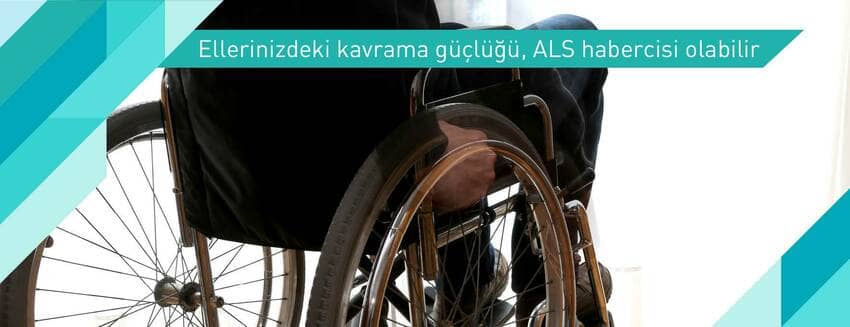
Symptoms of ALS, one of the rare diseases leading to progressive muscle weakness, are manifested in the early stages with restricted movement in the hands, twitching in the arm and leg muscles and difficulty swallowing. With an incidence of 3 in 100,000, ALS does not only affect the movement system, but also brings along forgetfulness and psychological problems.
Every year, June 21 is commemorated as World ALS Day. The cause of Amyotrophic Lateris Sclerosis, also known as the disease that British physicist Stephen Hawking contracted at the age of 21, is not fully known.
Üsküdar University NPISTANBUL Hospital Neurology Specialist Dr. Celal Şalçini stated that 10 percent of this disease, which has been known since the 19th century, is familial and genetic, and that the risk factors are not clear.
It is more common in men
Neurology Specialist Dr. Celal Şalçini stated that ALS disease is slightly more common in men than in women and said, "The symptoms of ALS are clumsiness in fine movements in the hands (such as using keys or tools, doing manual work) and difficulty swallowing. In addition, twitching is observed in the arm and leg muscles of the patients. Since this only damages the roots of the nerves going to the muscles, it does not impair the sensory system, numbness, tingling and numbness in the limbs are not observed."
Healthy nutrition remains important in ALS
Stating that there is no information yet to prevent ALS disease or triggering factors, Celal Şalçini said, "Lifestyle changes such as healthy eating, avoiding toxins, antioxidant-rich nutrition, avoiding heavy metals, which are recommended for the prevention of all kinds of diseases, are also recommended if not scientific. ALS is not only associated with the movement system, but is also known to cause difficulties in mental processes. Forgetfulness and psychological problems are also frequently seen."
Early supportive therapies improve the quality of life of patients
"For the diagnosis of the disease, it is necessary to be examined by a neurologist and an EMG test should be performed," said Şalçini and continued his words as follows: "EMG test is of two types. The first is the nerve conduction studies that we do with electrical stimuli and are completely harmless, and the examination we call needle EMG, which is absolutely necessary for ALS. Needle EMG means that a very thin needle is inserted into the muscles and very small twitches are examined. Although there is no curative treatment in modern medicine, early supportive treatments and surgical procedures such as diaphragm pacing improve the quality of life of the patient and his/her relatives."
